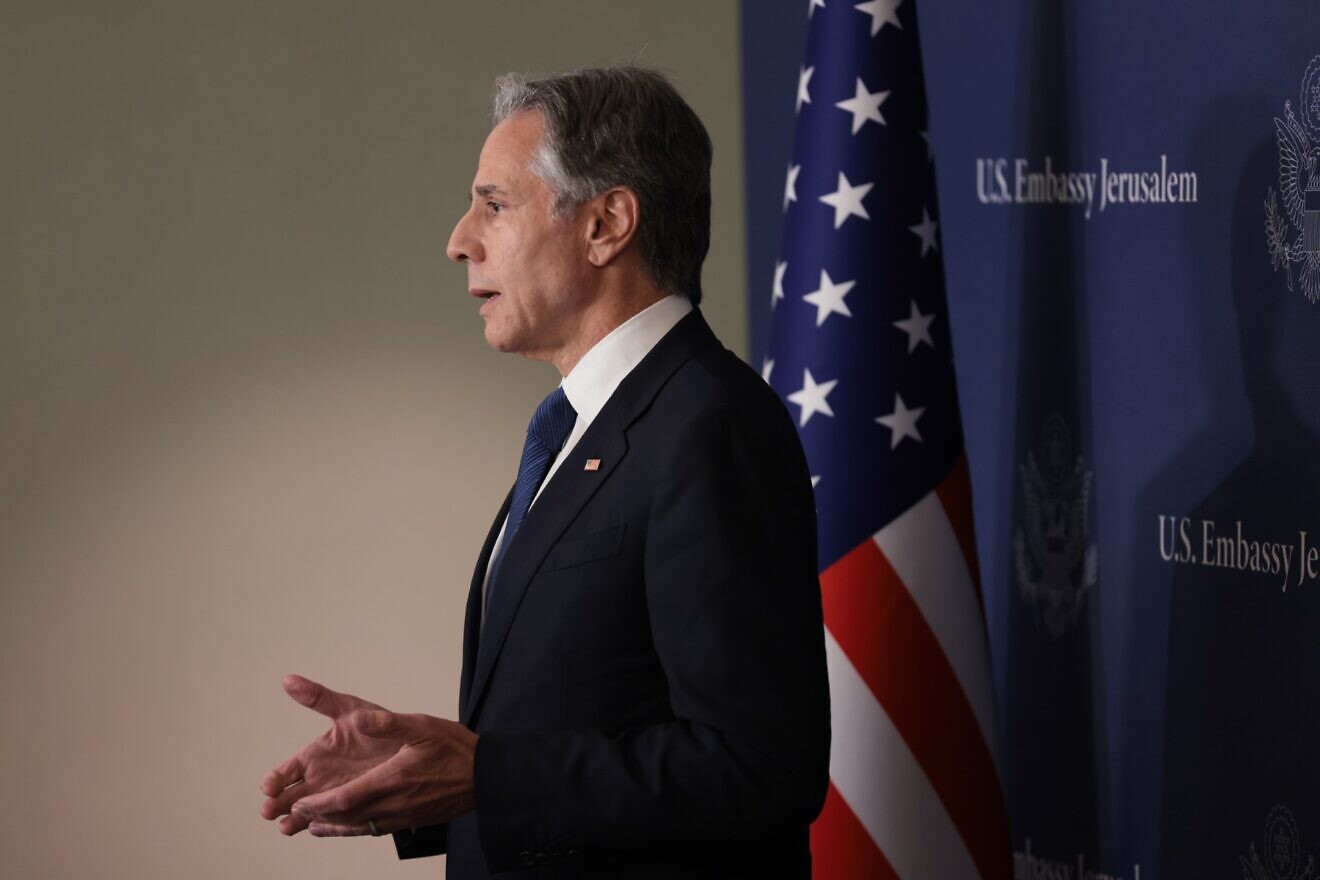U.S. Secretary of State Antony Blinken was in Egypt when news of the brilliant attack on Hezbollah terrorists through their beepers hit the airwaves. Because Israel hadn’t and still hasn’t claimed responsibility for the audacious maneuver, America’s top diplomat was unable to point blame by name.
Still, he and everybody else in the world was well aware of which country could execute such an elegant operation—one that incapacitated thousands of Iranian-backed serial killers simultaneously across Lebanon—with minimal collateral damage.
Rather than expressing admiration for and awe at the genius of the move, he behaved as though he’d been caught with egg on his face. His ill ease and shame were palpable during his press conference in Cairo; so much so that he began by insisting that “the United States did not know about, nor was involved in, these incidents. We’re still gathering information and gathering the facts.”
He went on to indicate that neither information nor facts would make a difference to the attitude of his administration to the Israeli initiative.
“Broadly speaking, we’ve been very clear, and we remain very clear, about the importance of all parties avoiding any steps that could further escalate the conflict that we’re trying to resolve in Gaza and see it spread to other fronts,” he asserted. “It’s clearly not in the interest of anyone involved to see that happen. And that’s why, again, it’s imperative that all parties refrain from any actions that could escalate the conflict.”
All parties.
This is the verbal mechanism that Blinken and his bosses in Washington have been employing to create immoral equivalence between Israel and the radical Islamist enemies bent on its annihilation since well before the Oct. 7 massacre.
Nor do repeated assurances from the powers-that-be in D.C. that Israel “has the right to defend itself” pass muster; the right to defend oneself is not some privilege granted by a benefactor—it’s a given. In the case of Team Biden, it’s a disingenuous redefinition of the concept reserved for the tribe of which he happens to be a member.
Indeed, every single action on Israel’s part related to threats in and around its borders is and has been defensive, even when retaliatory or pre-emptive. The latter is unacceptable to the current White House and State Department, which seem to take the former to mean rocket interceptions and mad rushes to bomb shelters.
The explosion of the beepers on Tuesday and the walkie-talkies on Wednesday is merely the latest example. Rather than secretly lauding the closest ally of the United States in the Mideast for its amazing ability to think and act outside the box, Blinken and other administration officials, opted to be open about their displeasure.
Meanwhile, the secretary of state made a point of praising other regional actors; and dubious ones, at that.
“Egypt continues to be an indispensable partner in pursuing a ceasefire in Gaza—one that brings the hostages home, that relieves the suffering of the people of Gaza and creates the foundation for an enduring peace,” he said, obfuscating the reality that all suffering in the terrorist enclave is due to Hamas’s rule there since 2007. You know, the organization that has been commandeering all humanitarian-aid trucks filled with goods for the civilian population of the Strip. Its terrorists are stealing the food and other supplies for themselves and selling it to “non-combatant” Gazans at exorbitant prices.
It’s not an issue that seems to concern the international choir accusing Israel of using the starvation of the residents of Gaza as a weapon of war. Blinken never went that far, yet refrains from addressing the issue when urging “both sides” to exercise restraint—to kiss, make up and establish a Palestinian state for an “enduring peace.”
Notice his ongoing failure to mention that Egypt for years has been enabling the smuggling of weapons and construction materials through tunnels connecting the Philadelphi Corridor to Gaza. No wonder Cairo opposed the Israel Defense Forces entering Rafah; its leader didn’t want the men and women in IDF uniforms to discover the size and extent of those passageways. And he’s remained adamant during “negotiations” for a ceasefire-hostage-release deal that Israel maintain no control over the area.
Nevertheless, Blinken told reporters that he “thanked the president [Abdel Fattah el-Sisi] and the foreign minister [Badr Abdelatty] and other colleagues for Egypt’s commitment to this work. And we discussed the importance of getting this deal across the finish line—something we’ll continue to pursue, along with our Qatari counterparts.”
As though Qatar, which provides a safe haven for Hamas honchos, is some kind of honest broker, rather than a force of evil.
“We all know that a ceasefire is the best chance to tackle the humanitarian crisis in Gaza, to address the risks to regional stability—risks that I know are felt viscerally here in Egypt; in particular, the Houthis’ continued attacks on global commerce in the Red Sea, aided and abetted by Iran, are reducing traffic in the Suez Canal. And that’s cost Egypt a projected $5 billion in lost revenue.”
Nice that he’s so worried about Egyptian finances. Amazing that his sole reference to Tehran is in the Houthi context when the Islamic Republic is behind Hamas and Hezbollah.
“We’ve made a tremendous amount of progress over the last month, month and a half,” he said. “There are, I think, in the agreement, eighteen paragraphs; fifteen of them are agreed, but the remaining issues need to be resolved.” In other words, the insurmountable ones.
“The most important thing in this moment is seeing a demonstration of political will to finally conclude this agreement,” he claimed, obviously directing the comment at Israel. Let’s face it: “Political will” isn’t what comes to mind when considering the motives of mass murderer Yahya Sinwar and his rapist executioners.
“And that’s what we discussed,” Blinken expounded. “We also discussed in some detail what would be necessary arrangements if an agreement is finally reached, in terms of the so-called ‘day after’—what happens in Gaza in terms of its governance, its security, its reconstruction. And here, as well. Egypt is and will be a critical partner, and I think we had a very useful conversation about that today, as well.”
Thank God that the government of Israeli Prime Minister Benjamin Netanyahu didn’t give the likes of Blinken a heads-up about plans to detonate Hezbollah’s communication devices. All Jerusalem would have received in return was a big, fat “don’t.”




























